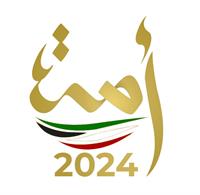01/04/2024
01/04/2024

KUWAIT CITY, April 1: The tremendous developments the current media scene is witnessing have contributed to rapid changes in creating the media content, especially following the publication on March 3 by Kuwait's official gazette of a decree inviting eligible voters to elect National Assembly members. This resulted in the appearance of the majority of candidates running for the National Assembly on podcast platforms to promote their electoral campaigns and secure a "green seat" in Abdullah Al-Salem Hall.
In this regard, several academics and podcast platform creators told KUNA that the concept of dialogue in podcasts took the lead in the world of content creation and contributed to influencing public opinion during the election period. This also helped candidates to attract the largest possible number of voters due to the many advantages podcasts had over traditional means, mainly having more freedom to express, more time when recording dialogue sessions, lower financial costs, and easier access to all age groups and different segments of society.
Mass Communications Professor at Kuwait University (KU) Dr. Fawaz Al-Ajmi told KUNA that one of the main reasons candidates are relying on podcasts is that there is no need to commit to a specific time to talk about their resumes, their electoral programs and avoid some restrictions imposed by some traditional media outlets and the policies of media corporations. He added, therefore most of the candidates turned to electronic broadcasting due to the diversity of the receiving audience and the speed of access to their reaction, as well as the possibility of archiving all speeches, and media messages and segmenting the interview and having some snapshots that can be used on social media platforms to widely spread it to targeted groups.
When asked if podcasts contributed to the spread of candidates within society, Dr. Al-Ajmi responded that choosing the suitable podcast for the relevant targeted group will undoubtedly lead to achieving the objectives of the candidate's election campaign and will help in getting to know the programs of the candidate's campaigns. He added that traditional media outlets are common to specific times when hosting candidates, unlike podcasts that can be accessed at any time and any place and allow the candidates to answer all questions of the episode and provide time to clarify the comprehensive vision of events and issues to the audience.
Associate Professor in the Department of Mass Communication at KU, Dr. Hussain Murad told KUNA that the most important factors that contributed to the interest of candidates in podcast platforms are their low financial cost, their rapid spread, and the ease of reaching the required targeted groups. He added that the National Assembly candidates can reach the largest number of listeners at a low cost by broadcasting podcast interviews on social media programs. He continued that the traditional media outlets responded to this change and some of them adapted to it by merging podcasts into their programs to attract more audience and adapt to the changing media scene.
He noted that the main reason for the popularity of podcasts is their flexibility in reaching the largest number of audience, as the number of views of podcast programs during the Covid-19 pandemic reached about 383 million in the world, compared to 504 million views this year. As for the reasons for candidates to use podcasts, he said that the largest audience of these programs is the youth, who make up over 70 percent of Kuwaiti society. The other reason is freedom from the restrictions of the traditional media.
Creator of "Jawla Podcast" platform, Bader Al-Askar told KUNA that the flexibility of viewers to follow episodes of podcasts and access them anytime is what caused the reluctance of candidates to be on traditional media means that abide by a broadcast schedule throughout the day and adhere to specific times to show the interviews on their channels. He added that podcasts have a spontaneous and calm nature and do not adhere to the strict media protocols applied by the media corporations. He continued the programs of the podcasts are divided into various fields and topics in the episodes are divided into cultural, entertainment, political, and science.
He affirmed that while hosting candidates, his platform seeks to deliver the opinions of candidates on the most important social issues and to openly and transparently ask the voters' questions, refusing to lose the primary identity of the podcast and turn it into a propaganda platform for candidates. He noted that the spread of podcasts is much faster than traditional media, as they access all segments of society more easily, transcend geographical borders, and influence public opinion. For his part, "Albesat Ahmadi" podcast creator, Fahad Al-Subaei, told KUNA that one of the reasons why candidates turn to podcast platforms is the diversity of the age groups that these programs target and the ease of listening to them when practicing daily life activities.
He said that many candidates turned to podcast programs instead of electoral seminars and advertisements as they have become a form of promoting their campaigns due to their easy access to the targeted audience to present their proposals. He pointed out that the credibility of the podcasts in the National Assembly elections in 2022 and 2023 differs from this year as some platform creators are exploiting the transformation of media content into commercial content, as well as the candidates choosing the questions and topics. He stressed that these factors reduce the impact and popularity of these programs, and their credibility in presenting important ideas and issues.


